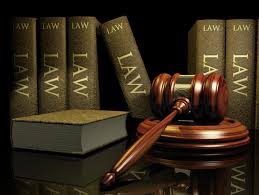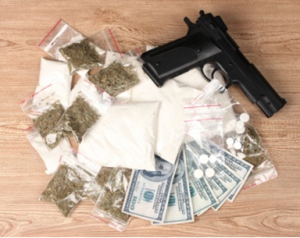Unlawfully Dealing With A Child: Knowingly Permitting Child To Enter A Place Where There Is Activity Involving Controlled Substances?
People v Berry
New York Court of Appeals
2016 NY Slip Op 04656
Decided on June 14, 2016
Issue: Whether the evidence was legally sufficient to prove that defendant permitted underage children to enter or remain in a place where there was activity involving controlled substances in violation of Penal Law 260.20(1).
Holding: The Court of Appeals held that the evidence offered was legally insufficient to support the conclusion that defendant “permit[ted]” underage children to “enter or remain” in a place of drug activity (Penal Law 260.20 [1]). To establish that a defendant [*2]permitted a child to enter or remain in a particular place, premises, or establishment, within the meaning of Penal Law 260.20 (1), the People must show that the defendant had a relation either to the child or to the place, premises, or establishment, such that he or she could control whether the child entered or remained there.
Facts: On the morning that defendant was arrested, police officers executing a search warrant, broke open the door of an apartment in Brooklyn and found the target of the warrant, TH, asleep in the living room with two of her children, a grandchild, and defendant. The police found loose crack cocaine on a cabinet shelf in the kitchen.
Defendant had no legal relationship to TH’s children or grandchild. TH’s name was on the lease agreement for the apartment. Defendant’s name was not on the lease agreement, but appeared on a cable television bill addressed to him at the apartment. TH and defendant were arrested and jointly charged not only with criminal possession of a controlled substance but also with three counts each of unlawfully dealing with a child in the first degree (Penal Law 260.20 [1]). TH pleaded guilty to one count of criminal possession of a controlled substance in the third degree and one count of unlawfully dealing with a child in the first degree, and Defendant proceeded to a jury trial. The People’s theory at trial was that defendant permitted the children to remain in TH’s apartment insofar as he did not call the police or “anybody” to report that children under 18 lived in the apartment. TH testified for the defense. She described defendant as a trusted friend, but testified that he had no “authority” over the children and was never left alone with them.
This testimony was uncontested by the People. No proof was offered by the People that defendant exercised any control over the children. TH also testified that defendant did not live in the apartment, and that he was sleeping on a mattress on the floor next to the sofa bed, not in that bed with her and the children. The jury found defendant guilty of the three counts of unlawfully dealing with a child in the first degree, but acquitted him of the drug possession charges.
Legal Analysis: The Court of Appeals held that a person is guilty of unlawfully dealing with a child in the first degree under Penal Law 260.20 (1) if he or she knowingly permits a child less than eighteen years old to enter or remain in or upon a place, premises or establishment where… …activity involving controlled substances as defined by article two hundred twenty of this chapter [Controlled Substances Offenses] or involving marihuana as defined by article two hundred twenty-one of this chapter [Offenses Involving Marihuana] is maintained or conducted, and he knows or has reason to know that such activity is being maintained or conducted.
Here, defendant contends that the evidence is legally insufficient to show that he possessed the authority over either the children or the apartment required to permit the children to remain in the apartment.
First, defendant argues that the evidence does not establish that he had authority over the apartment. To the extent defendant suggests that he could not be convicted of unlawfully dealing with a child in the absence of proof that he had the legal authority to determine who may enter the premises a power that a house guest does not normally possess (see generally Minnesota v Olson, 495 US 91, 99 [1990]) –his contention relies on a false premise.
Someone without legal authority over a place may still permit a child to enter or remain in it, within the meaning of the statute. Defendant here points to no basis in legislative history or policy for concluding that the statute is limited to d efendants with legal authority over the premises. The plain language of the statute is purposely broad in scope. Consequently, we reject defendant’s argument that the People were required to show that he had legal authority over the apartment.
efendants with legal authority over the premises. The plain language of the statute is purposely broad in scope. Consequently, we reject defendant’s argument that the People were required to show that he had legal authority over the apartment.
Second defendant contends that the evidence does not establish that he had authority over the children, and therefore the prosecution did not show that defendant was in a position to permit the children to remain upon the premises. Defendant suggests that he could be found guilty of unlawful dealing with a child in the first degree only if he had a legal duty to the children as their parent or guardian or under a doctrine of in loco parentis whereby he had assumed all the responsibilities incident to parenthood, People v Munch, 92 AD3d, 70-71 (3d Dept 2011).
The Court of Appeals held that to establish that a defendant permitted a child to enter or remain in a particular place, premises, or establishment, under Penal Law 260.20 (1), the People must show that defendant’s relation to the child,or, to the premises or establishment was of such a kind that defendant had some ability to control the child, so as to permit the child to enter or remain in the place in question. Moreover, a mere ability to notify authorities does not constitute such ability to control, or the statute might  apply to anyone who comes into contact with a child entering or remaining in one of the proscribed places. The legislative history supports this analysis. That history demonstrates that the statute was intended to protect children from those who exploit them for illicit purposes (Assembly Mem in Support of Legislation, Bill Jacket, L 1992, ch. 362, at 10.)
apply to anyone who comes into contact with a child entering or remaining in one of the proscribed places. The legislative history supports this analysis. That history demonstrates that the statute was intended to protect children from those who exploit them for illicit purposes (Assembly Mem in Support of Legislation, Bill Jacket, L 1992, ch. 362, at 10.)
Here, the People offered no evidence that supports the conclusion that defendant could prevent the children from remaining on the premises or, conversely, allow them to remain. Viewed in the light most favorable to the prosecution, the evidence establishes at most that defendant had access to TH’s apartment, and spent the night there regularly. There is no evidence, however, that defendant ever fed, babysat, or otherwise cared for the children in any manner or had any authority over them. Indeed, there is no evidence that defendant was ever alone with the children. Such factors may support the inference that defendant spent leisure time at TH’s apartment, or even that, in some sense of the word, he temporarily “lived” there (dissenting op at 2), but they do not ground the conclusion that he had any ability to control the children’s movements.
Accordingly, the Court held that for these reasons, the evidence is legally insufficient to establish that defendant permitted TH’s children and grandchild to remain in the apartment within the meaning of Penal Law 260.20 (1), and reversed the order of the Appellate Divisions order.


